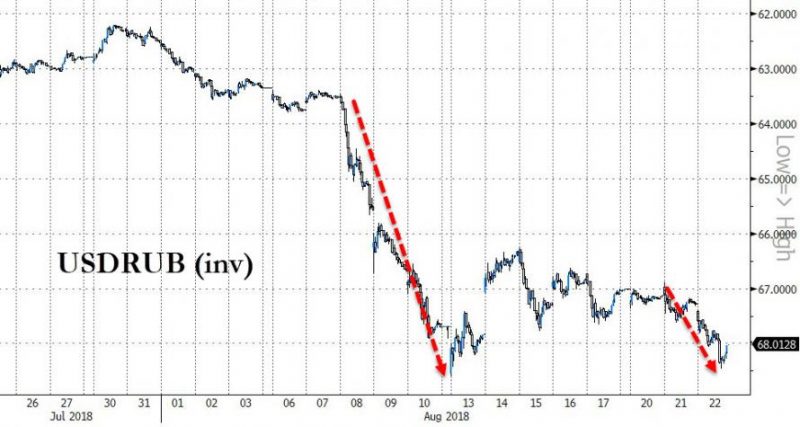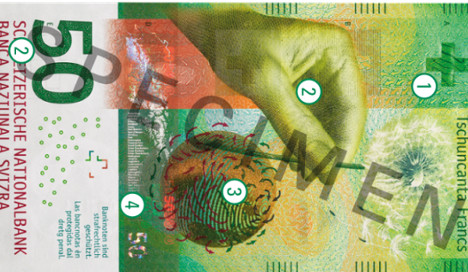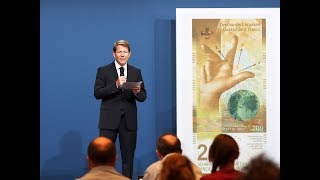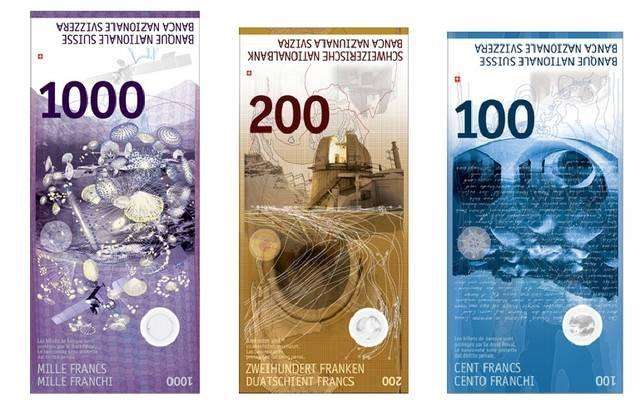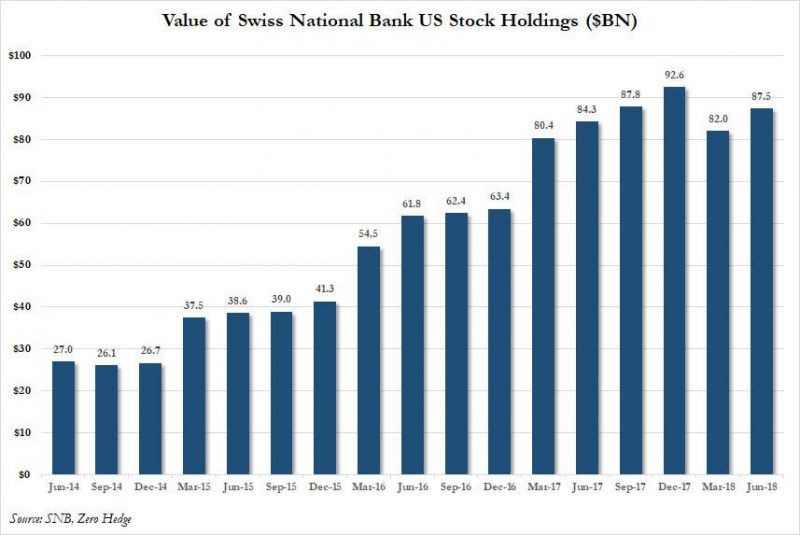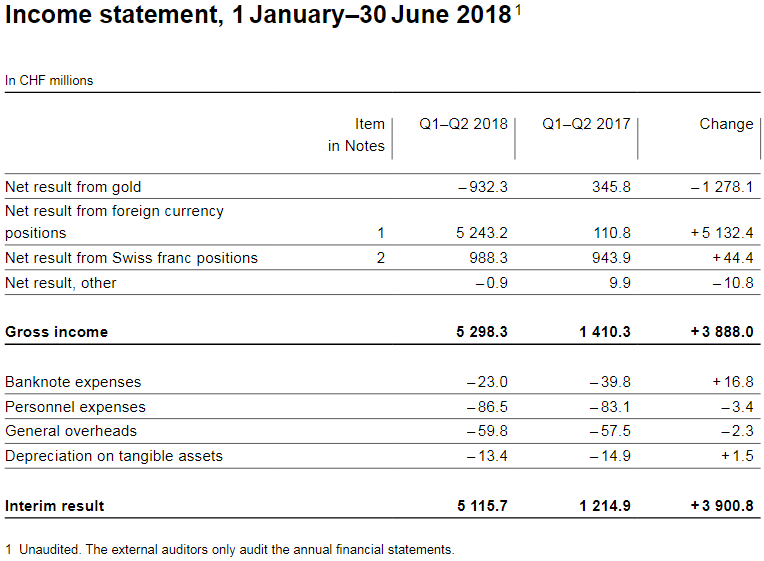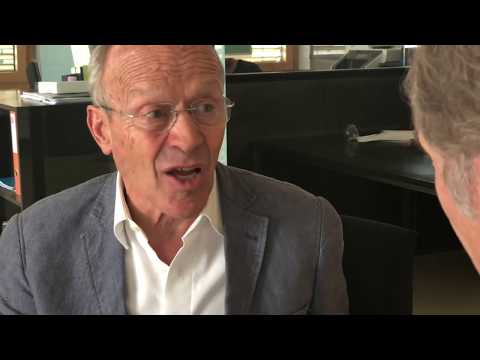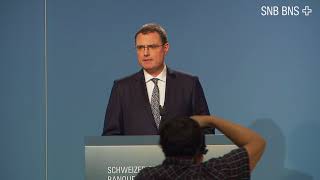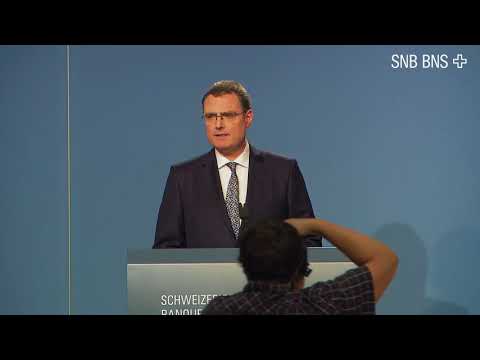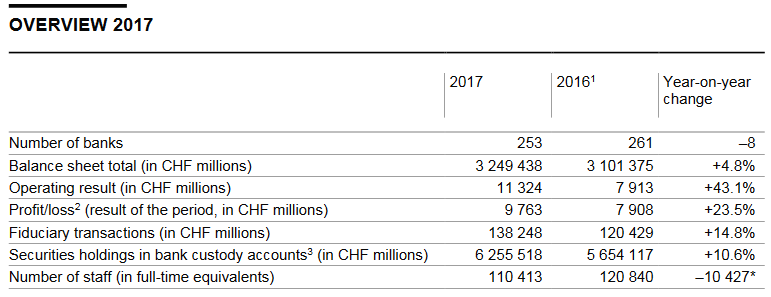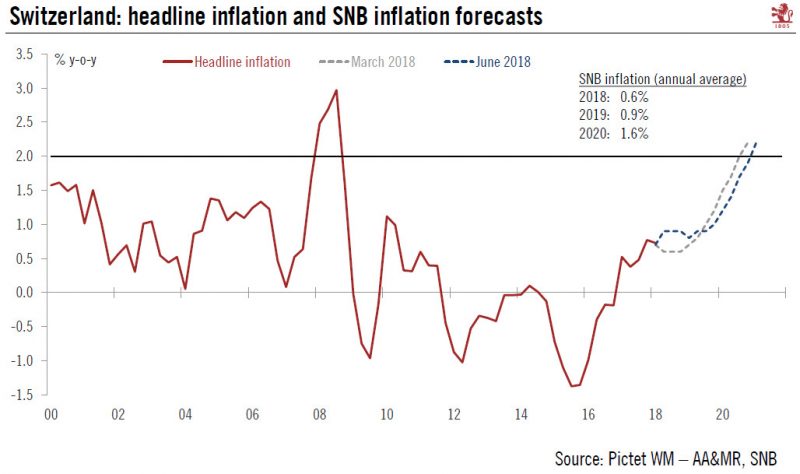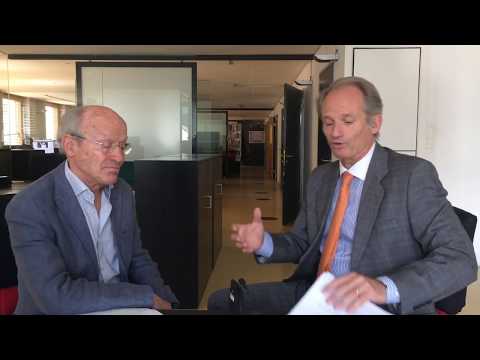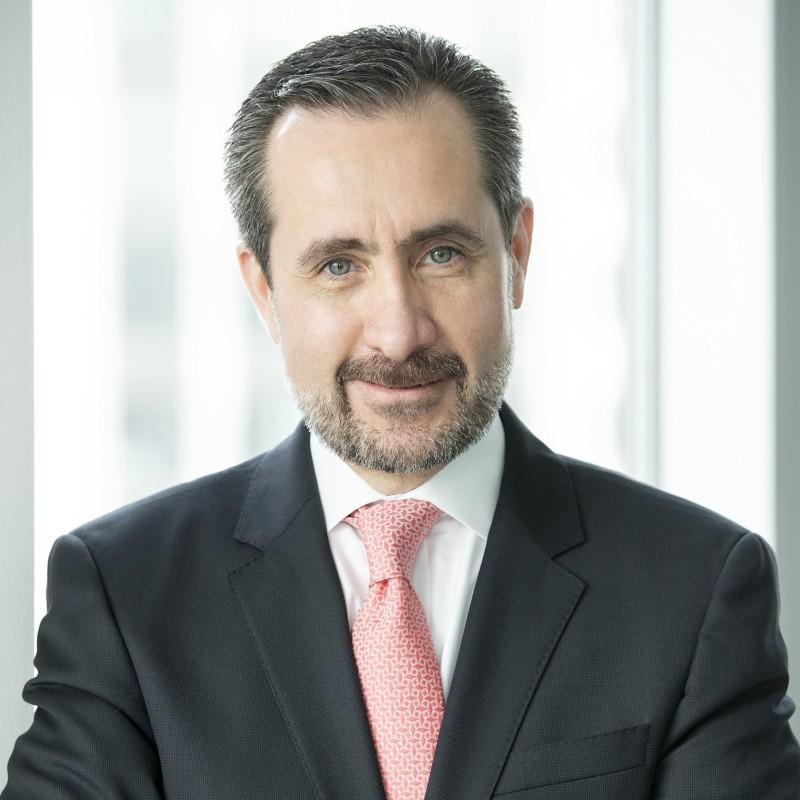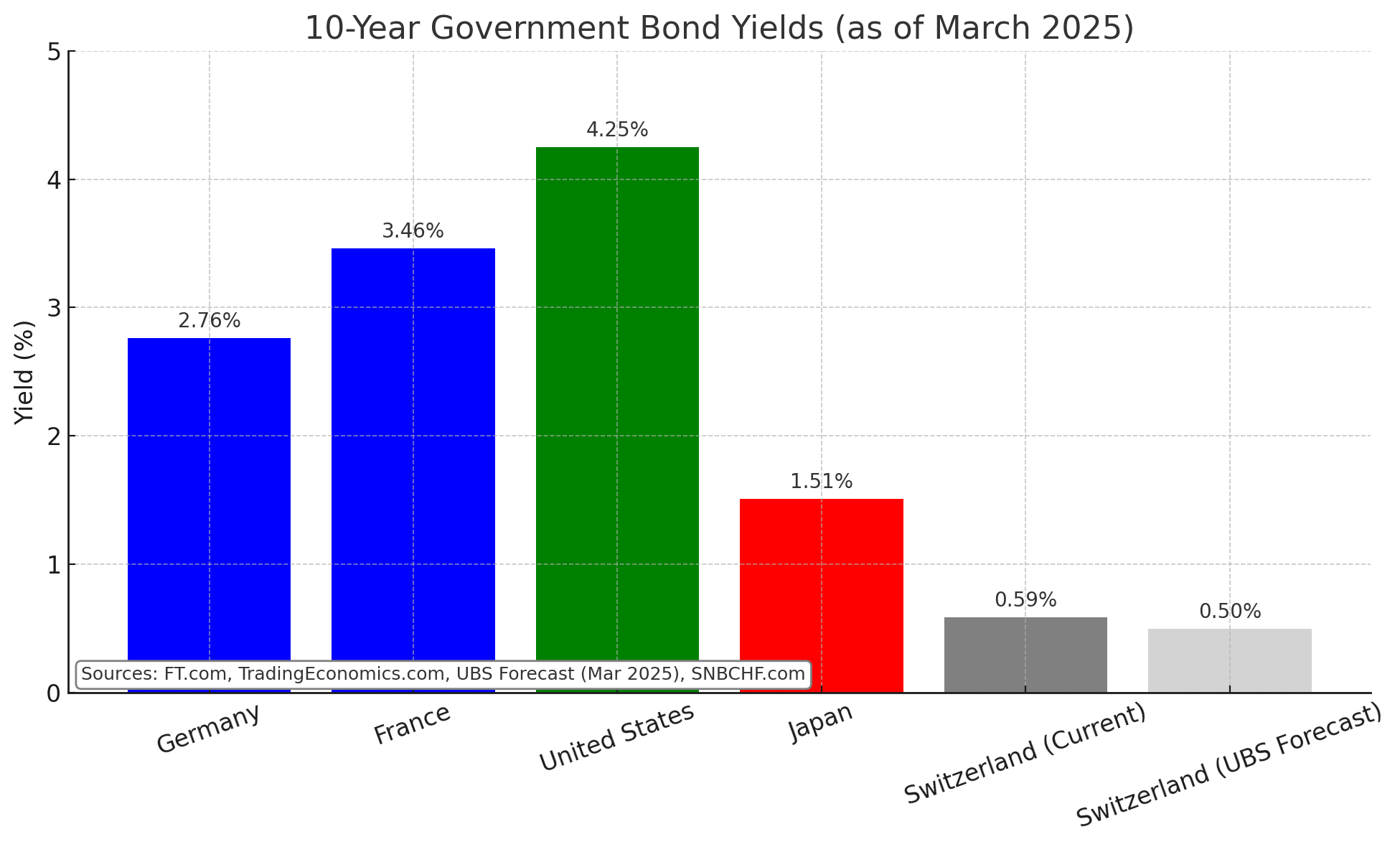Category Archive: 1) SNB and CHF

The secrets of the new 200 Swiss franc note
Switzerland began updating its notes starting with the 50 franc note in April 2016. It then issued the new 20 franc note in May 2017, and the new 10 in October 2017. The newest note to grace Swiss wallets, pockets and purses is the 200 franc note, which was launched on 22 August 2018.
Read More »
Read More »
Swiss Bank Freezes $5 Billion In Russian Money
For years, Russian oligarchs and robber barons seeking to park their "unsourced" capital offshore and away from the sticky fingers of the Kremlin, treated Swiss bank accounts (preferably anonymous) with their "no questions asked" customer policies as, well, Swiss bank accounts.
Read More »
Read More »
SNB banknote app updated for new 200-franc note
The Swiss National Bank’s ‘Swiss Banknotes’ app is designed to help the public familiarise themselves with the new banknotes. The popular app, which has been downloaded some 100,000 times, now also showcases the new 200-franc note. It can be downloaded free of charge from the Apple (itunes.apple.com) and Google Play (play.google.com) app stores.
Read More »
Read More »
Or suisse: M Villiger a mené la politique nécessaire au bradage des années 2000. Vincent Held
Le 1er mai de l’an 2000, la Banque nationale suisse démarrait la vente de quelque 1’300 tonnes d’or à des prix historiquement bas. Le jour suivant le début de cette grande braderie, la BNS expliquera que tout ceci se déroulait dans le cadre d’un « accord sur l’or » conclu avec « 15 banques centrales européennes ».
Read More »
Read More »
Die neue 200-Franken-Note: Präsentation – Le nouveau billet de 200 francs: présentation
Dieser Film zeigt Impressionen von der Präsentation der neuen Schweizer 200-Franken-Note am 15. August 2018 in Zürich. Fritz Zurbrügg, Vizepräsident des Direktoriums der Schweizerischen Nationalbank, stellt die wichtigsten Gestaltungsmerkmale und Sicherheitselemente der neuen Banknote vor. - Ce film donne quelques impressions de la présentation du nouveau billet de 200 francs qui a eu lieu le 15 août 2018. Fritz Zurbrügg, vice-président de la...
Read More »
Read More »
Die neue 200-Franken-Note: Präsentation – Le nouveau billet de 200 francs: présentation
Dieser Film zeigt Impressionen von der Präsentation der neuen Schweizer 200-Franken-Note am 15. August 2018 in Zürich. Fritz Zurbrügg, Vizepräsident des Direktoriums der Schweizerischen Nationalbank, stellt die wichtigsten Gestaltungsmerkmale und Sicherheitselemente der neuen Banknote vor. – Ce film donne quelques impressions de la présentation du nouveau billet de 200 francs qui a eu lieu le …
Read More »
Read More »
Swiss National Bank releases new 200-franc note
Fourth banknote in latest series showcases Switzerland’s scientific expertise. The Swiss National Bank (SNB) will begin issuing the new 200-franc note on 22 August 2018. Following the 50, 20 and 10-franc notes, this is the fourth of six denominations in the new banknote series to be released. The current eighth-series banknotes will remain legal tender until further notice.
Read More »
Read More »
The Swiss National Bank Now Owns $87.5 Billion In US Stocks After Q2 Tech Buying Spree
In the second quarter of 2018, one in which the global economy was shaken by the rapid escalation of Trump's trade war, and in which central banks were one after another hinting at their own QE tapering and rate hiking intentions to follow in the Fed's footsteps, what was really taking place was another central bank buying spree meant to boost confidence that things are now back to normal, using "money" that was freshly printed out of thin air, and...
Read More »
Read More »
SNB reports a profit of CHF 5.1 billion for the first half of 2018
The Swiss National Bank (SNB) reports a profit of CHF 5.1 billion for the first half of 2018. A valuation loss of CHF 0.9 billion was recorded on gold holdings. The profit on foreign currency positions amounted to CHF 5.2 billion. The profit on Swiss franc positions was CHF 1.0 billion.
Read More »
Read More »
Swiss franc’s defensive features likely to come back into fashion
Despite heightened trade tensions, the Swiss franc has been relatively weak against the US dollar of late. The defensive features of the franc seem to be outweighed by an unsupportive interest rate differential. But the continuing threat of escalation in trade disputes and extreme short speculative positioning on the franc mean the latter has upside potential.
Read More »
Read More »
Federal Council appoints Martin Schlegel as new Alternate Member of the SNB Governing Board
At its meeting of 4 July 2018, the Federal Council appointed Martin Schlegel as the new Alternate Member of the Governing Board of the Swiss National Bank (SNB), following the proposal of the SNB’s Bank Council. He will take up the position of Deputy Head of Department I as of 1 September.
Read More »
Read More »
Ueli Maurer gegen Thomas Jordan
Finanzminister Ueli Maurer hat völlig überraschend den Notenbank-Chef in die Pflicht genommen. Der solle sofort aufhören, weiter Euro zu kaufen und so die Bilanz seiner SNB immer noch mehr aufzublähen. Laut Bankenprofessor Hans Geiger könnte Maurer damit bezwecken, Jordan auf den Pfad der Tugend zurückzuführen – ohne Hunderte von Milliarden in Euro und Dollar. Die …
Read More »
Read More »
Ueli Maurer hat recht: Der Erste, der einsieht, dass die SNB sich hoffnungslos verrannt hat
„An der Grenze des Erträglichen“ – so beurteilt Bundesrat und Finanzminister Ueli Maurer die Bilanz der Schweizerischen Nationalbank (SNB). Als ehemaliger Präsident des Zürcher Bauernverbandes ist Maurer zu einer Milchbüchlein-Rechnung fähig. Als Inhaber des eidgenössischen Buchhalter-Diplomes kann er auch eine Bilanz beurteilen.
Read More »
Read More »
Mediengespräch – Conférence de presse – News conference – Conferenza stampa, 21.06.2018
Mediengespräch - Conférence de presse - News conference - Conferenza stampa, 21.06.2018
00:00 Einleitende Bemerkungen von Thomas Jordan, Präsident des Direktoriums der Schweizerischen Nationalbank - Remarques introductives de Thomas Jordan, président de la Direction générale de la Banque nationale suisse - Introductory remarks by Thomas Jordan, Chairman of the Governing Board of the Swiss National Bank - Osservazioni introduttive di Thomas Jordan,...
Read More »
Read More »
Mediengespräch – Conférence de presse – News conference – Conferenza stampa, 21.06.2018
Mediengespräch – Conférence de presse – News conference – Conferenza stampa, 21.06.2018 00:00 Einleitende Bemerkungen von Thomas Jordan, Präsident des Direktoriums der Schweizerischen Nationalbank – Remarques introductives de Thomas Jordan, président de la Direction générale de la Banque nationale suisse – Introductory remarks by Thomas Jordan, Chairman of the Governing Board of the Swiss National …
Read More »
Read More »
Banks in Switzerland 2017, Results from the Swiss National Bank’s data collection
Summary of the 2017 banking year. Of the 253 banks in Switzerland, 229 recorded a profit in 2017, posting a total profit of CHF 10.3 billion. The remaining 24 institutions recorded an aggregate loss of CHF 0.5 billion. The result of the period for all banks was CHF 9.8 billion. The aggregate balance sheet total rose by 4.8% to CHF 3,249.4 billion.
Read More »
Read More »
Buying more time
At its quarterly monetary policy assessment last week, the Swiss National Bank (SNB) kept unchanged the target range for the three-month Libor at between -1.25% and -0.25% and the interest rate on sight deposits at a record low of -0.75%. The SNB reiterated its willingness to intervene in the foreign exchange market if needed.
Read More »
Read More »
Swiss residential property risks growing in buy to let, according to Swiss National Bank
On 21 June 2018, the Swiss National Bank (SNB) announced its decision on interest rates, which it left unchanged. Switzerland’s economy has been sailing into the headwinds of a strong currency since the SNB scrapped its exchange rate cap in January 2015 and the Swiss franc briefly went beyond parity with the euro.
Read More »
Read More »
22.06.18 | INSIDE PARADEPLATZ | LUKAS HÄSSIG | DON PIERIN UND DIE FINMA
Homepage: http://www.startv.ch Facebook: https://www.facebook.com/StarTVswitzerland Twitter: https://twitter.com/startvch Instagram: https://www.instagram.com/startv_schweiz Youtube: https://www.youtube.com/user/startv Vimeo: https://vimeo.com/startvswitzerland Google+: http://tinyurl.com/StarTV-Schweiz
Read More »
Read More »
Don Pierin und die Finma
Die Aufsicht hätte längst die Privatgeschäfte des Ex-Raiffeisen-Chefs unter die Lupe nehmen können. Stattdessen blieb sie lange still. Ihr jetzt erschienener Bericht ist nur dem Schein nach hart. Tatsächlich half die Finma beim Verschweigen der Affäre.
Read More »
Read More »










